Can Guinea Pigs Eat Apples?
Nolan FosterApples are one of the most common fruits on the planet. This is because they are unpretentious and contain many useful components. Today we will answer the question: can guinea pigs eat green apples? This fruit includes a stock of nutrients consisting of fats, proteins, carbohydrates, dietary fibers (pectin). Also, the apples have a lot of vitamins A, B, C, and provitamin acids. Such components are necessary for many living organisms, so the consumption of these fruits has an overall positive effect on the body. Also, in addition to useful nutrients, in apples some fibers physically cleanse the intestines, restoring the digestive tract. Guinea pigs are no exception, they also need vitamins and nutrients, so these fruits are also useful to them. In addition to the fruit, for guinea pigs are very useful seeds of this fruit, they clean the teeth of the pet well.
Fresh or dried: which is better to give?
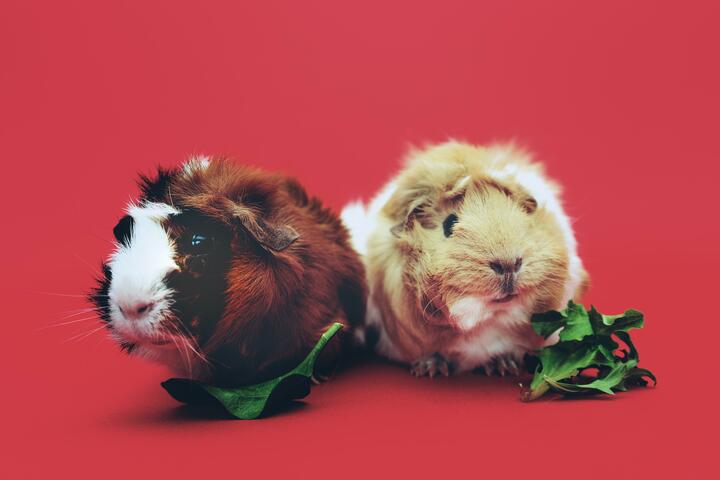 Photo by Scott Webb on pexels
Photo by Scott Webb on pexelsFresh apples are a very useful product for feeding. They contain all the vitamins and nutrients in their entirety. Before giving the fruit, it should be washed and cut into slices, because the mouth of the pigs is small and they are not adapted to biting off large objects. The whole apple of the mumps can not eat. It is not necessary to remove the seeds.
The apple should not be overripe or too soft. Such fibers are clogged between the front incisors of the mumps and cause discomfort.
Also, if it is too juicy, it will stain the muzzle, which can lead to pests with different diseases. Also, the fruit should not have rotting and moldy areas.
Do not use acidic, immature fruits. Until the apple has ripened, it contains some aggressive components – acids in a high concentration. This composition leads to irritation of the mucous membranes of the digestive canal.
It is also possible to give dried apples to the pet. They contain less useful elements because in the process of drying many molecules break down.
But, hard dried slices have another equally important function in guinea pig’s body – grinding of chisels. Guinea pigs, because they are rodents, have one important device – the front (and only) teeth grow constantly.
If the guinea pigs cannot grind them, the jaw will not stop closing. Because of this, the animal must constantly chew hard objects. In nature, these are young shoots of trees, shrubs. In the home, the role of sharpeners:
•dried fruits;
•nutshells;
•chicken bones;
•stones for grinding.
In no case, do not give mumps fruit from the compote.
Its digestive system is not designed to digest soft boiled mass, so there may be a slippage of digestive lumps in the stomach. Also, because the pet is adapted to eat solid food, he can easily choke on water from such pieces.
How many times a day?
For guinea pigs, it is recommended to eat twice a day. They have a very small stomach, so the animal should eat all the time.
If you put food with food for the whole day, the guinea pigs can jam it and mix it with feces. So, if there is no bowl that the mumps will not turn over, it is better to put the food during the day. Juicy fruits and vegetables, including apples, should be given in the morning so that the pet ate everything in the morning. This is because at night mumps eats less often, pieces of fruit may sour and attract fruit flies. At night, it is better to give dry food to the piggy.
Size of portion
When feeding guinea pig apples, there are three factors to consider:
•High sugar content;
•Large amounts of vitamins;
•A high concentration of acids.
All these components, if excessively high, can lead to digestive disorders, mucous membrane irritation, and deterioration of the pet.
In this regard, to feed guinea pig fresh apples is not more than three times a week. And give it 2 – 3 slices, depending on the size of the fruit.
Dried fruit can be given in a bowl – every day in the morning 3 – 4 slices.
Guinea pigs like apple seeds, and in juicy fruits, it can be given them.
But, you should not collect these seeds, store them separately for a long time and sprinkle them with a handful. The fact is that the seed peel contains cyanic acid. Its concentration increases over time, which makes them poisonous. A large number of seeds, especially after long storage lead to serious poisoning and even death of the pet.
Thus, a guinea pig can be fed fresh apples three times a week, dried – every day in the morning. You should not give wet apples or boiled from the compote. Apple seeds can be given only from fresh fruits a few pieces, and seeds should not be collected and stored separately, as they accumulate extremely poisonous cyanide acid.
Funny video
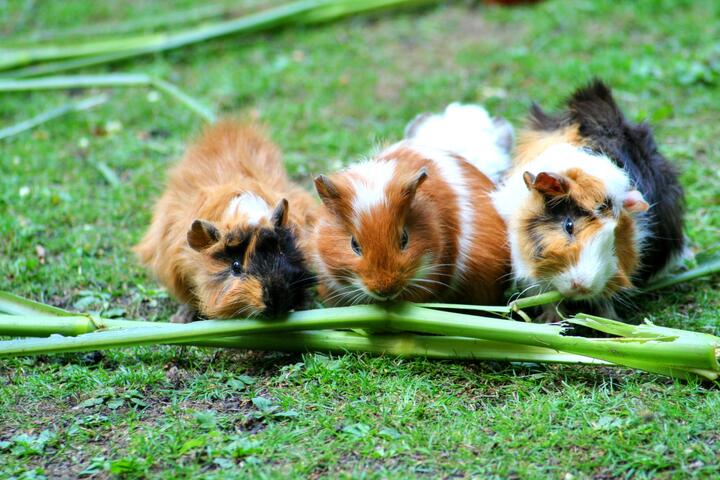 Photo by Pixabay on pexels
Photo by Pixabay on pexelsSee also 24 interesting facts about guinea pigs
Can guinea pigs eat apples? The answer may surprise you. Most guinea pigs are very picky when it comes to their diet. While a solitary guinea hamster will be perfectly content with a small slice of apple, a solitary male may be averse to the idea. While it is possible to hand-feed a guinea hog an apple, you must be prepared to take the animal’s reactions into account.
A guinea pig can eat green apples. This fruit is high in Vitamin C, which can prevent the onset of scurvy. However, be sure to remove the seeds as they can be toxic to your pet. When offering your guinea pig an apple, you should also wash it well. The core of an apple contains a lot of fibre, which is good for your solitary pet. Moreover, guinea pies also make a nice treat for your solitary rodent.
You can give guinea pigs apples on a special occasion. But remember that they should never eat them on a daily basis. The best option would be to offer a few slices of an apple once in a while. A whole apple can be a choking hazard, and the seeds of an apple are big. So, you should be extra careful when feeding your guinea pig apples.
Apples should be given to guinea pigs occasionally. They should not be given apples every day. Instead, give your guinea a slice every few days. You can also serve apple salads. If you don’t want to mess with the skin, you can also serve an apple salad instead. Aside from fresh fruits, guinea pigs can also enjoy apples if they’re offered in small quantities.
When preparing an apple for your guinea pig, make sure that the apple has been thoroughly washed. If you’re preparing a whole apple for your guinea pig to eat, it should be cleaned thoroughly. Likewise, you should avoid giving sour apples to your guinea pig. A sour apple can be acidic and cause diarrhea.
If you’re considering introducing apples to your guinea pig, make sure that the seeds don’t contain any seeds. They can choke on them, and they shouldn’t ingest them if they have seeds. Besides, apples contain Cyanide, which is harmful to guinea pigs and their digestive systems. If you’re worried about the seeds, don’t worry! Although it’s not advisable to feed your giraffes with apple seeds, however, you shouldn’t give your guinea pigs apples every day.
Unlike humans, guinea pigs can eat apples without any problems. However, the seeds can choke on apples, and cyanide can be harmful to guinea pigs. You can also feed your guineapig the skin of an apple. Adding it to the diet can add fiber and vitamin C to its diet. You can’t ingest the apple peel.
Apples can be safely fed to guinea pigs. You can feed them an apple with apple chunks. You can also let your guinea suck on the apple itself. If they’re happy and don’t mind the taste, it’s a great choice. If your guinea pig is not yet used to eating apples, it might not be as enthusiastic about it as you would.
It’s important to remember that apple seeds can choke guinea pigs. The seeds are also highly acidic and can harm their digestive systems. Apart from the seeds, the guinea pigs can also eat the apple’s skin. This makes it easier for guinea pigs to chew the apple. They can also chew on the apple’s leaves, which are rich in calcium.
While guinea pigs can eat apple slices, they should not be fed raw. The fiber content of an apple can cause diarrhea in guinea pigs. You should also peel apple slices before giving them to your guinea pigs. You can also feed guinea hogs celery, but you must be cautious with this as it is a choking hazard.
- BirdsThe Cockatoos Danced To The Anthem Of The Fight Against Coronavirus

- LivestockCan Chickens Swim?By Camilo Walker
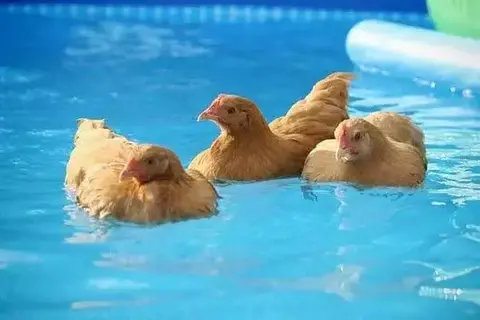
- RodentsHamster Or Guinea Pig: Who Should I Choose?By Charlotte Green
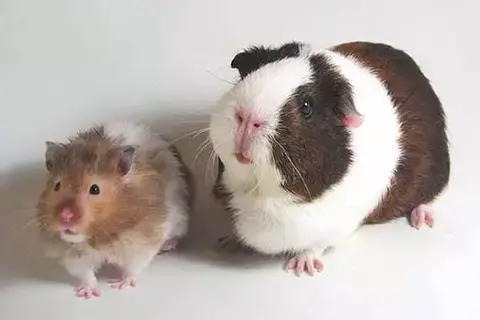
- WildlifeInteresting Maned Wolf FactsBy Camilo Walker
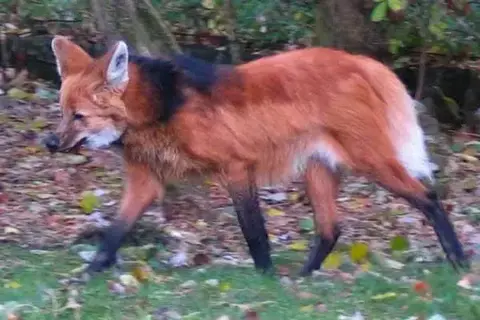
- Dogs10 Interesting Facts About PoodlesBy Khai Dove

- Wildlife20 Interesting Facts About BatsBy Khai Dove
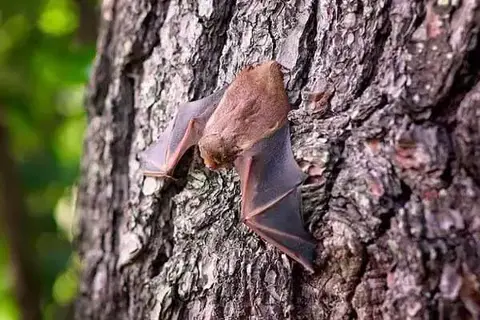
- WildlifeInteresting Facts About The MongooseBy Evelyn Star

- Rodents100 Amazing Facts About SquirrelsBy Evelyn Star

- Wildlife7 Interesting Facts About HyenasBy Karla Miller
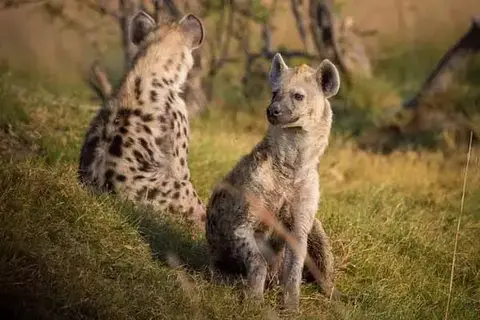
- BirdsWhich Hawk Is The Largest?By Khai Dove
